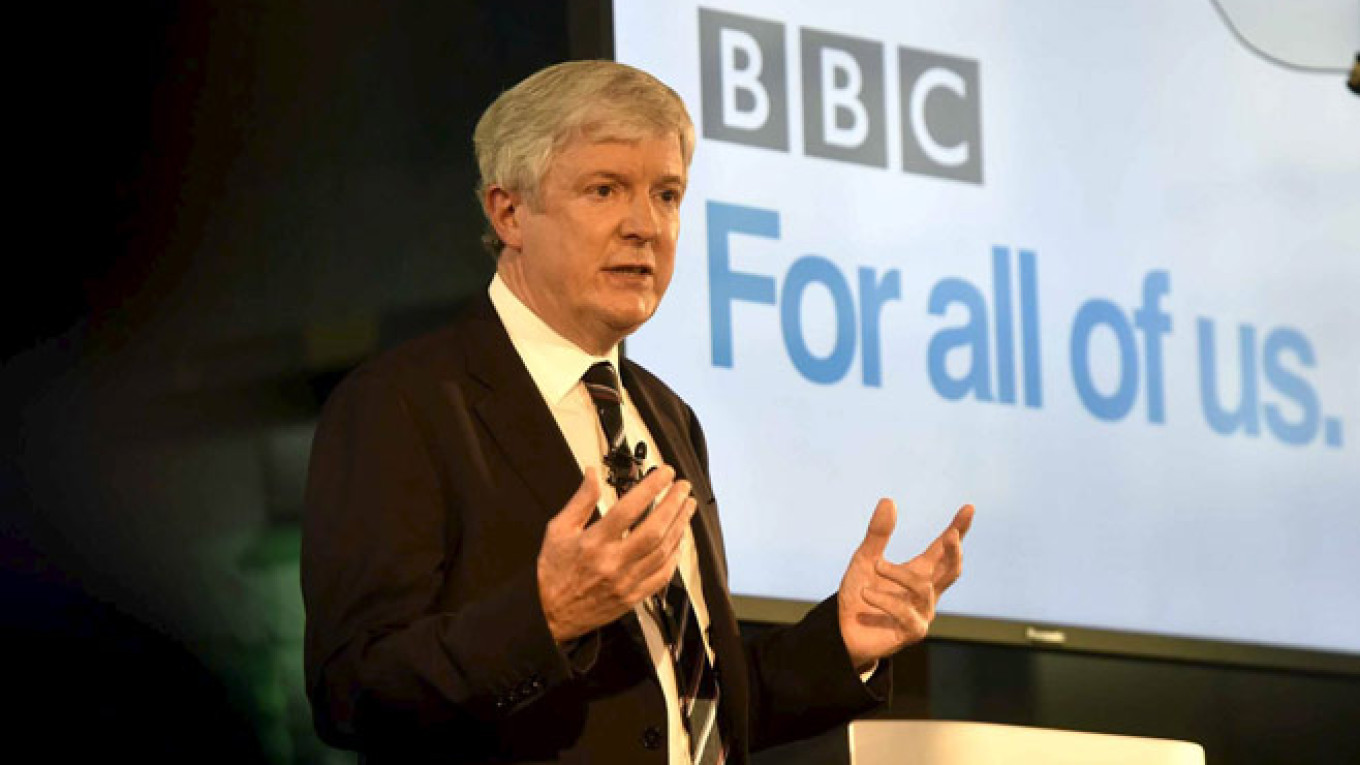The BBC plans to launch short-wave radio broadcasts to North Korea for the first time and start new TV or digital services in Russia to address "democratic deficits," the world's biggest public service broadcaster said Monday.
It also proposed a new radio news service for Ethiopia and Eritrea.
As part of its proposals for the next decade, the British broadcaster, which is under mounting political pressure to justify its size in a digital age, and facing severe cuts to its budget, said it planned significant investment in its World Service operation.
"This is a service we want to strengthen and expand," said Tony Hall, the BBC's director general.
"My own strong view is that this is one area where this country's voice could be much stronger — especially in the Middle East, India and Russia and the states that used to make up the Soviet Union."
The broadcaster, which wants to reach 500 million people globally through its news operation, said it would beam the World Service, which has had its funding reduced since 2010, to areas "where there is a democratic deficit in impartial news."
As part of these plans, the BBC would aim to expand its digital presence in Russia, either via YouTube or its Russian equivalent RuTube, and would look at the feasibility of a Russian satellite TV channel.
It also plans a daily news service for North Korea, whose citizens are largely cut off from news of the world outside, having no access to the Internet and being unable to make calls outside their country.
Currently the U.S.-funded Voice of America (VOA) and Radio Free Asia (RFA) both make short-wave broadcasts in Korean to the communist state, where those who listen to unauthorized foreign broadcasts can face severe punishment.
But unlike South Korea and the United States, Britain is not seen by Pyongyang as an enemy state, and the BBC plans might not evoke as harsh a reaction.
The 93-year-old BBC is facing the prospect of one of its biggest overhauls on the back of criticism from some ministers and rivals that it stifles commercial competition and fails to provide balanced political coverage.
In July, the government said it would look at whether the BBC should be cut back and whether its current funding structure, with its major source of income coming from households paying a £145.50 ($222) license fee, needed reform.
Hall said some services would "inevitably" be shut and that the BBC would allow rivals access to some of its material and platforms.
A Message from The Moscow Times:
Dear readers,
We are facing unprecedented challenges. Russia's Prosecutor General's Office has designated The Moscow Times as an "undesirable" organization, criminalizing our work and putting our staff at risk of prosecution. This follows our earlier unjust labeling as a "foreign agent."
These actions are direct attempts to silence independent journalism in Russia. The authorities claim our work "discredits the decisions of the Russian leadership." We see things differently: we strive to provide accurate, unbiased reporting on Russia.
We, the journalists of The Moscow Times, refuse to be silenced. But to continue our work, we need your help.
Your support, no matter how small, makes a world of difference. If you can, please support us monthly starting from just $2. It's quick to set up, and every contribution makes a significant impact.
By supporting The Moscow Times, you're defending open, independent journalism in the face of repression. Thank you for standing with us.
Remind me later.


